Podcasts are all the rage. So I was flattered when Mike Janela invited me to be a guest on his podcast. Mike took one of my TV Hosting Classes in 2015 and ran with the idea of focusing on what you can control in your career: Marketing yourself. Guess what? Not long after our interview, Mike was hired for his dream job: Host of Padres Social Hour: a live, interactive one-hour conversation every Padres gameday. He’s going to The Show and moving to San Diego. Mike credits his podcast with giving him that something extra. I turned the tables and asked Mike:
Please describe the Mike Janela Podcast and why you got started?
The Mike Janela Show is a (mostly) weekly interview-based show that gives me a chance to talk to people who do things I enjoy – sports, media, entertainment, business. It’s half learning how these people got to where they are and half talking to them about their area of expertise and pulling back the curtain on their world. I got started for a few reasons: 1.) I know a lot of really cool, accomplished people that I thought would be fun to talk to in a professional setting. 2.) It makes for fantastic networking and brand-building opportunities for everyone involved. 3.) I wanted to express myself somewhere I had complete creative control. I mean, my name’s right in the title. 4.) It seemed like fun, I love talking, and I wanted to see what the fuss was about!
Who’s your target audience?
The show’s motto is “smart takes on silly things,” so anybody who would appreciate that. My broad target audience is anyone like me: Millennials who would be visiting ESPN.com, Vulture, or reading the USA Today business section (because we don’t take ourselves as seriously as the people who read the Wall St. Journal). My aim with every show is: Would I be entertained if a stranger did this and I had to listen?
How do you market your podcast? Where do you see the most ROI?
My podcast marketing is entirely grassroots and completely word of mouth. Budgetarily, I haven’t had extra money yet to do any ad buys or social media marketing. But my guests are usually on because they already carry some social influence and part of the understanding of the podcast is we’ll both promote each other, whether it’s Facebook shares or Twitter mentions/RTs. Twitter mentions from the guest’s account are by far my biggest ROI driver.
What’s the best part of podcasting?
The best part of podcasting is there are no rules. It’s just a conversation. It can go for as long or as little as you want. You can curse. You can ask weird questions. You can laugh. There’s research and work and prep and logistical stuff that goes into it, sure. But once it’s go time, you just sit down, hit record, and talk. After that, anything goes.
What’s the hardest part of podcasting?
The hardest part of podcasting for me is finding original topics to discuss. If I have a guest on, they’ve probably done interviews before. Some guests have done hundreds. How can I ask them something that makes them say “Wow, good question” or hit a topic they’ve never talked about before? How can my show be unique? It takes a lot of research and a lot of outside the box thinking, which aren’t always easy.
Anything you know now, you wish knew when you started?
Unavoidably, there were technical issues when I started my podcast. I was particularly plagued by crappy audio levels. Some of my early episodes, which were amazing guests, sounded garbled or warped or very hard to hear. I’ve ironed out most of the issues by now, but when you’re trying to make a good first impression, some of those early episodes could’ve literally sounded better. So I’d tell myself now to try and do a few more test runs before going live.
Has hosting your podcast made you a better host? Has it opened any doors? Changed your perspective?
It’s definitely made me a better host in that it’s helped me grasp the “realist” style that’s so useful these days. Ron Burgundy is out. YouTube stars who just goPro their daily lives are in. Podcasting is like that – just a loose conversation – and one of the things I had a hard time with to start my career was shaking the feeling I had to be “on” whenever I was creating something. The podcasting hasn’t opened any doors directly (yet! – How quickly things can change – BBA). But, being able to put that on a resume has piqued people’s interest to the fact I’ve proven I can host a 30 or 60-minute content block. Anybody can do a minute of stuff. Without a podcast, you need a radio or TV show to prove that, and those are hard to land. So it’s definitely made me more attractive to and eligible for different paths.
OK, I have an idea for a podcast. How do I get started?
Things you need to start a podcast:
A site to host the actual files. I use Podomatic for its low prices, but there are many choices out there.
A site to distribute the podcast to iTunes if you choose. I use my professional WordPress site, MikeJanela.com Any WordPress site is pretty simple to configure.
Follow the iTunes/Stitcher/Soundcloud instructions for having your podcast on those sites. Most people think you upload directly to iTunes. You don’t. They just pull from different hosts online. So make sure to follow — to the tee — the instructions each place provides.
Equipment…
What is essential equipment to get started? What is worth investing in and where can one go budget/cheap?
There are a lot of different setups but I’ve kept mine as simple as possible. Here’s what I have: USB microphone that plugs into computer. Mic stand holder. Mac laptop I already owned. Headphones to listen to your guest. Skype account to dial guests from the computer (it’s free to Skype audio them; you can also buy credit to call people on their phones, which I do because Skype isn’t convenient for every guest). Call Recorder for Skype software from Ecamm. Everything I have is budget, but I would get a quality mic. I spent about $80 on mine, which is still affordable when you think about it and works great.
How much do time do you put into your podcast every week? How much time do you spend editing?
I put in between 1-2 hours of researching my guest every week for the podcast. Setup is minimal, sometimes I show up to my studio/bedroom 5 minutes before recording. Just plug in the mic, open Skype, call and go. And then I spend however long listening back to the show. Editing is very short because I like to keep my interviews unedited, as if they were live. Getting it uploaded onto the proper channels then probably takes 30 minutes or so.
What are the best podcasting platforms?
The best public facing platforms are iTunes, Stitcher, and SoundCloud. Behind the scenes, SoundCloud can be harder to configure with your hosting sites, though. As for hosting platforms, I use Podomatic because it has the cheapest storage, but will probably upgrade to Libsyn once my Podomatic subscription expires.
Any advice??
Make sure you’ve got all your tech specs down. Make sure you do all the prep necessary (from booking guests to researching them); you get exposed easily if you don’t. And have fun! This isn’t NPR, it’s talking on the Internet.
In case your missed it, here are Parts 1 & 2 of Mike’s interview with me.


